Central Banks Consider Digital Currencies—What Does That Mean for Investors?
March 3rd, 2023 | Posted in InvestingCentral Banks are Weighing Digital Currencies – What That Means for Investors
A vast majority (~80%) of global central banks are conducting studies on digital currencies, with some already taking steps to launch them. Several questions likely come to mind for consumers and investors when considering the prospect of a digital currency. Does this mean cash is going away? Will money be held in bank accounts, or somewhere else? Are there investment implications for banks or other large financial institutions?
The Bank of England (BOE) has weighed in on some of these key questions as it recently issued proposals for a digital currency, which some have dubbed “Britcoin.” The Bank of England’s Treasury chief, Jeremy Hunt, emphasized that while Britcoin insinuates some connection to Bitcoin, the BOE’s digital currency should not be compared to a cryptocurrency.1
Bitcoin and other cryptocurrencies trade on exchanges, often with volatile daily price changes. Conversely, a digital currency (in this case Britcoin) would be denominated in pounds; would have stable value; and finally, would be backed by the Bank of England. None of these safeguards apply to cryptocurrency.
Take an Active Approach to Passive Investing.
Passive investing (as opposed to actively trading stocks) has become a highly popular approach, as seen in the rise of index funds, ETFs, and robo advisors.
The downside of a passive approach is that it is impossible to beat the market when you’re simply investing in the market. Zacks Advantage offers a better way forward: active management of passive index funds. Our research-driven investment process offers an actively-managed robo advisor that provides:
- Targeted asset allocation
- Automatic diversification
- Built-in discipline
- Simplified investing – with low fees
Learn more about how you can benefit from our actively-managed robo advisor with our free guide, A Better Way Forward: Actively Managing Passive Index Funds.2
Put simply, 100 pounds of a digital currency would always equal 100 pounds of cash. The British pound does fluctuate in value relative to the dollar, euro, and other currencies, but those daily price changes are hardly of the magnitude experienced in the cryptocurrency markets.
As for storage/accounts, digital currencies would be held in a digital wallet (also backed by the Bank of England but secured by a financial institution), so that consumers could pay for goods and services electronically, either by computer or with a mobile device. This form of payment already exists to an extent with Apple Pay, Google Pay, and others.
The U.S. Federal Reserve is also in the process of conducting studies on a digital currency here in the U.S., which they have termed a central bank digital currency, or CBDC. The Fed’s focus is on whether a digital currency could improve upon the already efficient and largely safe domestic payments system. At present, physical currency or cash is the only type of central bank money issued to the general public, but adding a digital currency would allow for more payment options without increasing or introducing credit or liquidity risks, according to the Fed.
Perhaps the best way to think about the implications of a digital currency is to consider the potential benefits and risks. The Federal Reserve details their views in a paper titled, Money and Payments: The U.S. Dollar in the Age of Digital Transformation.
Potential Benefits of a Digital Currency:
- It would offer the general public broad access to digital money without introducing credit risk and liquidity risk. As a result, it would create a strong foundation for private-sector innovations (fintech) to expand what’s possible in payment services.
- Adding to the previous point, a digital currency would also open the door to private sector innovation for companies of all sizes, not just the major players with access to partner banks.
- A digital currency in the U.S. would arguably preserve the dollar’s status as the world’s most-used currency. If another digital currency is launched and is easier to trade and use, it could decrease the global use of the dollar.
Potential Risks of a Digital Currency:
- At the most fundamental level, a digital currency could change the structure of the U.S. financial system, where banks in the private sector and the Fed have different roles than they do today. Banks largely rely on deposits to fund their loans, but with the introduction of a digital currency, consumers would not necessarily need to hold money at a bank – especially if the digital currency was interest-bearing. To the extent that deposits are reduced as a result of a digital currency, it could increase bank funding expenses, and reduce credit availability or raise credit costs for households and businesses, according to the Fed.
- An interest-bearing digital currency could also shift assets away from money market funds, Treasuries, and other short-term instruments – which could similarly “reduce credit availability or raise credit costs for businesses and governments. These concerns could potentially be mitigated by CBDC design choices.”
- How monetary policy works could also be a risk central banks need to consider. A digital currency could alter the supply of reserves in the banking system, which may affect how the Federal Reserve controls the federal funds rate and other short-term interest rates.
Bottom Line for Investors
The overarching conclusion, for now, is that cash is not going away anytime soon, so consumers are not likely to be forced into adopting digital currencies as a new form of payment and safe storage of money. According to a 2020 survey completed by the Fed, U.S. consumers used cash for about 20% of purchases, which is down from 40% just a decade earlier. Nevertheless, the Fed remains committed to making cash available even if a digital currency is introduced.
The notion that an introduction of a digital currency is vindication for cryptocurrency or perhaps even a thesis to buy cryptocurrency is off-base. Digital currencies essentially have little in common with cryptocurrencies, and the two should not be compared. As for financial institutions and the financial sector, large banks appear to be the players most at risk from a digital currency, as it may have implications for the levels of deposits held, which influences loan activity. This will be a factor to watch going forward.
Passive investing, including the use of index funds, ETFs, and robo advisors, has opened the door to millions of new investors. But it’s important to understand that while passive investing lets you be in the market, to beat the market you must take an active approach.
Zacks Advantage offers a research-driven investment process that offers the convenience and access of passive investing in an actively-managed robo advisor. Our approach:
- Invests exclusively with ETFs
- Uses technology to recommend the appropriate mix of equities and bond ETFs to help achieve your investing goal and specific risk tolerance.
- Combines robo technology with a real (human) advisor working to ensure that your portfolio is meeting your needs
- Lowers fees and expenses
Our free guide, A Better Way Forward: Actively Managing Passive Index Funds, provides investing insight that can help you determine whether technology-enhanced investing is right for you.
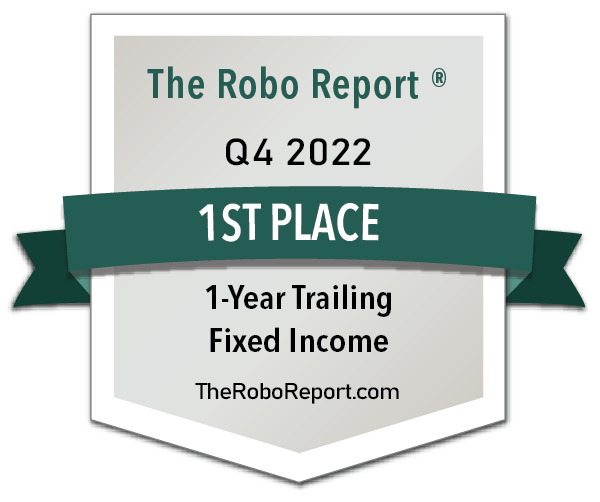
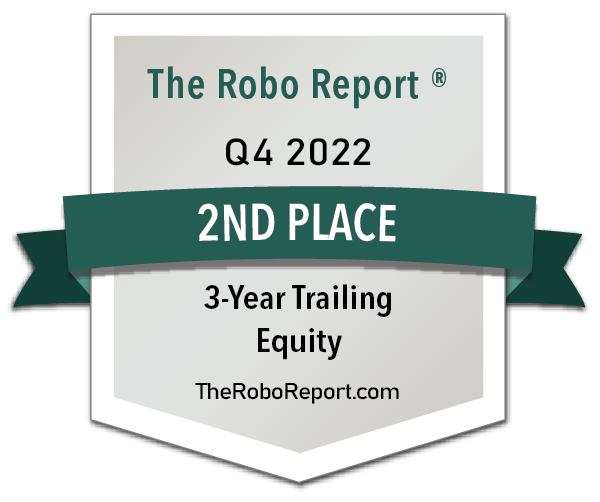
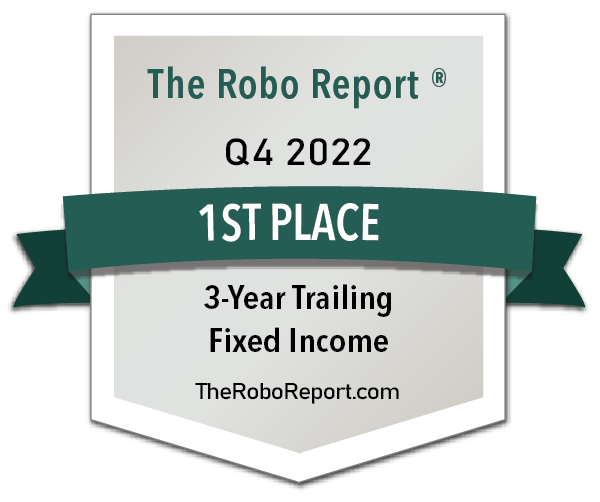

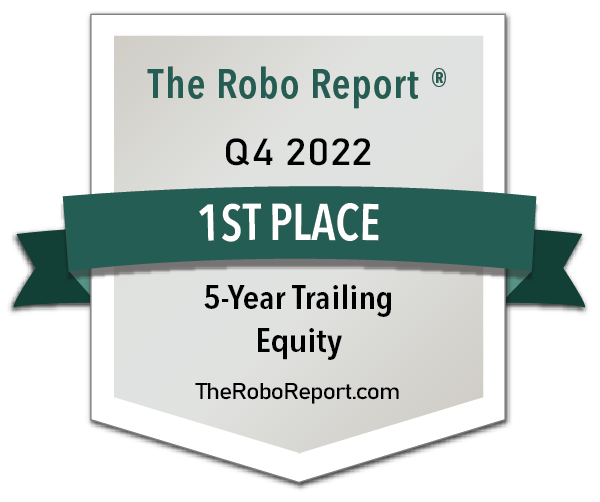
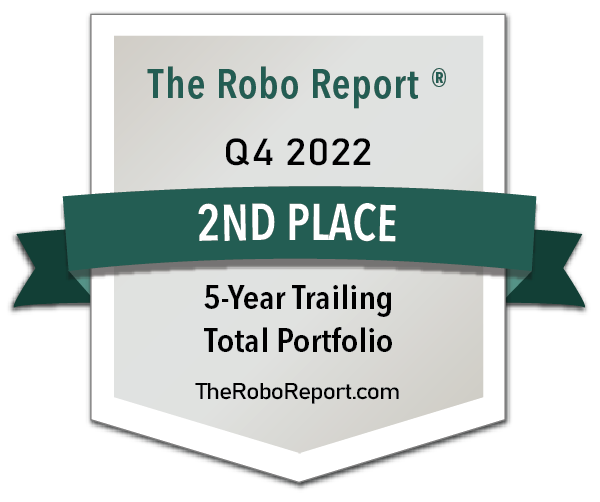
© 2023 Zacks Advantage | Privacy Policy | Unsubscribe
2 Zacks Investment Management may amend or rescind the A Better Way Forward: Actively Managing Passive Index Funds guide offer for any reason and at Zacks Investment Management’s discretion.
3 Zacks Investment Management may amend or rescind the A Better Way Forward: Actively Managing Passive Index Funds guide offer for any reason and at Zacks Investment Management’s discretion.
DISCLOSURE
Past performance is no guarantee of future results. Inherent in any investment is the potential for loss.
Zacks Advantage is a service offered by Zacks Investment Management, a wholly-owned subsidiary of Zacks Investment Research.
Zacks Investment Management, Inc. is a wholly-owned subsidiary of Zacks Investment Research. Zacks Investment Management is an independent Registered Investment Advisory firm and acts as an investment manager for individuals and institutions. Zacks Investment Research is a provider of earnings data and other financial data to institutions and to individuals.
This material is being provided for informational purposes only and nothing herein constitutes investment, legal, accounting or tax advice, or a recommendation to buy, sell or hold a security. Do not act or rely upon the information and advice given in this publication without seeking the services of competent and professional legal, tax, or accounting counsel. Publication and distribution of this article is not intended to create, and the information contained herein does not constitute, an attorney-client relationship. No recommendation or advice is being given as to whether any investment or strategy is suitable for a particular investor. It should not be assumed that any investments in securities, companies, sectors or markets identified and described were or will be profitable. All information is current as of the date of herein and is subject to change without notice. Any views or opinions expressed may not reflect those of the firm as a whole.
Any projections, targets, or estimates in this report are forward looking statements and are based on the firm’s research, analysis, and assumptions. Due to rapidly changing market conditions and the complexity of investment decisions, supplemental information and other sources may be required to make informed investment decisions based on your individual investment objectives and suitability specifications. All expressions of opinions are subject to change without notice. Clients should seek financial advice regarding the appropriateness of investing in any security or investment strategy discussed in this presentation.
Certain economic and market information contained herein has been obtained from published sources prepared by other parties. Zacks Investment Management does not assume any responsibility for the accuracy or completeness of such information. Further, no third party has assumed responsibility for independently verifying the information contained herein and accordingly no such persons make any representations with respect to the accuracy, completeness or reasonableness of the information provided herein. Unless otherwise indicated, market analysis and conclusions are based upon opinions or assumptions that Zacks Investment Management considers to be reasonable. Any investment inherently involves a high degree of risk, beyond any specific risks discussed herein.
The S&P 500 Index is a well-known, unmanaged index of the prices of 500 large-company common stocks, mainly blue-chip stocks, selected by Standard & Poor’s. The S&P 500 Index assumes reinvestment of dividends but does not reflect advisory fees. The volatility of the benchmark may be materially different from the individual performance obtained by a specific investor. An investor cannot invest directly in an index.
Robo investments are subject to some unique risks, including, but not limited to, the fact that investment decisions are made by algorithms based on investors’ answers to questions, there is a lack of human involvement, and there is the possibility that the software may not always perform exactly as intended or disclosed. Such investment programs are only suitable for investors who can bear the risk of a complete loss of their investments.
The S&P GSCI is the first major investable commodity index. It is one of the most widely recognized benchmarks that is broad-based and production weighted to represent the global commodity market beta. The index is designed to be investable by including the most liquid commodity futures, and provides diversification with low correlations to other asset classes. The volatility of the benchmark may be materially different from the individual performance obtained by a specific investor. An investor cannot invest directly in an index.
The NASDAQ-100 Index includes 100 of the largest domestic and international non-financial companies listed on The NASDAQ Stock Market based on market capitalization. The Index reflects companies across major industry groups including computer hardware and software, telecommunications, retail/wholesale trade and biotechnology. Index composition is reviewed on an annual basis in December. An investor cannot invest directly in an index. The volatility of the benchmark may be materially different from the individual performance obtained by a specific investor.
Zacks Investment Management 227 West Monroe St. Chicago, IL 60606
Past performance is no guarantee of future results. Inherent in any investment is the potential for loss
Zacks Advantage is a service offered by Zacks Investment Management, a wholly-owned subsidiary of Zacks Investment Research. Zacks Investment Management is an independent Registered Investment Advisory firm and acts as an investment manager for individuals and institutions. All material in presented on this page is for informational purposes only and no recommendation or advice is being given as to whether any investment or strategy is suitable for a particular investor. Nothing herein constitutes investment, legal, accounting or tax advice. The information contained herein has been obtained from sources believed to be reliable but we do not guarantee accuracy or completeness. Zacks Investment Management, Inc. is not engaged in rendering legal, tax, accounting or other professional services. Publication and distribution of this article is not intended to create, and the information contained herein does not constitute, an attorney- client relationship. Do not act or rely upon the information and advice given in this publication without seeking the services of competent and professional legal, tax, or accounting counsel.

